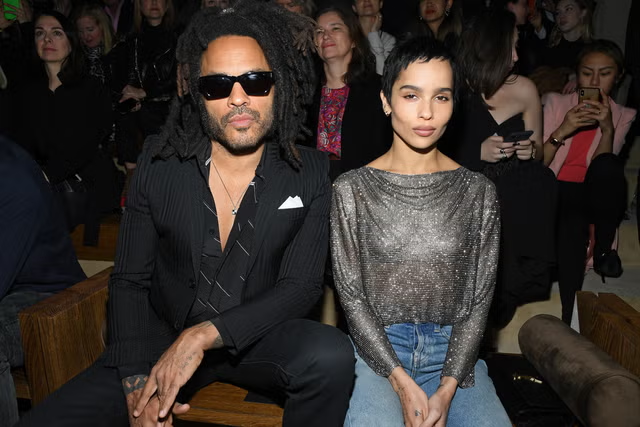When it comes to money and dating, Gen Zers and millennials might see things a little differently.
Gen Z men were less comfortable than millennials with the idea of their partner making more money than them, according to new data from personal finance app Monarch.
While 9 percent of Gen Z men said they wanted their partner to make a higher income than them, the share of millennial men who said the same was higher at 16 percent.
Their female counterparts were considerably more likely to want a partner with a higher income for both Gen Z and millennial men.
For Gen Z women, 31 percent said they wanted a partner who made more money, while 24 percent of millennial women said the same.
Bryan Driscoll, an HR consultant and generation expert, said millennial men are more likely to want their partner to make more money because they've already seen firsthand the reality of today's economy and often face stagnant wages, student debt and a "skyrocketing" cost of living.
"Unlike Gen Z, who are still relatively new to the workforce, Millennials have been battling these economic challenges for over a decade. They're tired of the outdated notion that men should be the primary breadwinners, especially when the traditional model doesn't work anymore," Driscoll told Newsweek.
Altogether, Gen Z and millennials were far more likely to be unbothered or even desire a partner who made a higher income compared to Gen X and Baby Boomers.
"It's a direct result of growing up in a world where financial instability is the norm," Driscoll said. "They recognize that a dual income household is not just a nice to have but a necessity in today's economy."
Among Gen X and Baby Boomers, men only wanted their partner to make a higher income 4 and 3 percent of the time.
The generational divide likely reflects how millennials have been forced to question and reject the traditional roles older generations often still cling to.
"In a world where economic survival trumps outdated gender norms, it's no wonder millennial men are more open to their partners making more money. It's a reflection of the times, and quite honestly, it's about time," Driscoll said.
Rachel Lawrence, Head of Advice and Planning at Monarch, said the longer it's been since women won the right to financial independence, the easier it is to forget what life was like before.
"Millennial men and women who grew up in the 1980s and 90s just as women were gaining full financial independence in the US might be the most aware of the significance of women being able to earn more than men, especially watching their parents experience these changes at ages when we generally form our views on money," Lawrence told Newsweek.
"Gen Z, who were born after women could be fully financially independent in the US, didn't experience their parents going through those pivotal times and might be taking women's financial freedom as a given, including the freedom to choose to be the breadwinner or to earn less than their partner."
Lawrence said you can already see that in the rising "tradwife" (traditional wife) trend that gained popularity among Gen Z women who prefer to rely financially on a partner.
Millennials are also at the age in which many are buying a home for the first time or having children, so having a higher household income might be seen as more important than their Gen Z counterparts.
"Some of it also simply is where people are in their lives," Alex Beene, a financial literacy instructor for the University of Tennessee at Martin, told Newsweek.
"Millennials are more set in their careers by this point and looking at solidifying major purchases like a home, saving for retirement, and having and maintaining children. They understand the costs associated with those and know they need a partner who can assist, whereas Gen Z may not yet be seeing those same milestones."
Michael Ryan, a finance expert and the founder of michaelryanmoney.com, said millennials have already been through the "financial ringer."
"They've weathered the Great Recession, sky-high student debt, and a pandemic-induced economic rollercoaster," Ryan told Newsweek.
"Many millennials I've worked with prioritize overall household stability over adhering to outdated gender norms. They've learned the hard way that two solid incomes can be a lifeline in tough times."
While not immune to economic challenges, Gen Z hasn't experienced the same level of financial upheaval as millennials, Ryan said. They also often haven't yet experienced a partner out-earning them and could be concerned about the ego hit.
"Many Gen Z men are just starting their careers," Ryan said. "The idea of a partner out-earning them might feel more theoretical and potentially threatening to their future prospects."
Disclaimer: The copyright of this article belongs to the original author. Reposting this article is solely for the purpose of information dissemination and does not constitute any investment advice. If there is any infringement, please contact us immediately. We will make corrections or deletions as necessary. Thank you.



